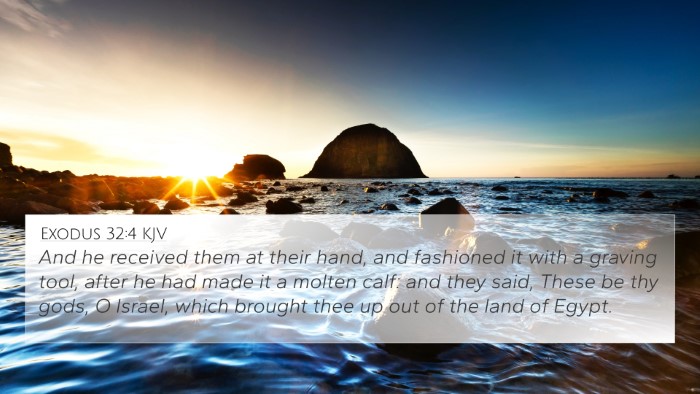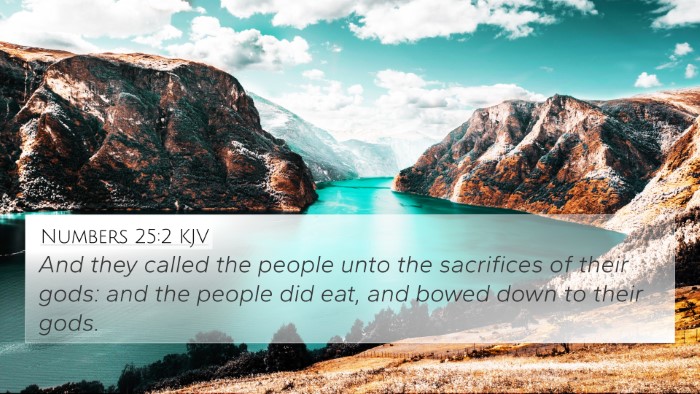Understanding Daniel 3:2
In Daniel 3:2, King Nebuchadnezzar of Babylon assembled the governors, officials, and chief men to dedicate a golden image he had set up. This moment is pivotal and speaks volumes about idolatry, authority, and the societal pressures to conform.
Contextual Analysis
In this passage, we see Nebuchadnezzar's decree as an expression of his power and desire for unity among his subjects. The image symbolizes the king's authority and the expectation of loyalty from the people, ultimately leading to a confrontation of faith and obedience.
Commentary Insights
- Matthew Henry: Henry emphasizes the king’s intent to consolidate loyalty through the imposition of this idol. It serves as a critical reminder of the dangers of idolatry and the prioritization of obedience to God over earthly authority.
- Albert Barnes: Barnes notes the importance of the assembly of officials, highlighting how it reflects a collective approach to idolatry. He draws parallels to the way societies often pressure individuals to conform, disregarding personal faith and convictions.
- Adam Clarke: Clarke delves deeper into the significance of the gold image, interpreting it as a representation of human pride and ambition. He warns against the worship of materialism and the transient nature of earthly possessions compared to divine truth.
Bible Verse Cross-References
Understanding Daniel 3:2 necessitates linking it to several key Bible verses. The connections illuminate the themes of authority, obedience, and idolatry. Here are some verses that relate to this passage:
- Exodus 20:4-5 - The command against making graven images and the repercussions of idolatry.
- Revelation 13:14-15 - A depiction of leadership inciting worship of an image, reminiscent of the decree in Daniel.
- Matthew 10:28 - The call to fear not those who kill the body, but rather Him who can destroy both soul and body.
- Psalm 115:4-8 - A critique of idols and the futility of worshiping them.
- Isaiah 44:9-20 - Discusses how those who make idols are deceived.
- Acts 5:29 - The apostles declare, "We ought to obey God rather than men," reinforcing the theme of fidelity to God over earthly authority.
- 1 John 5:21 - A warning against idolatry, highlighting its spiritual implications.
Thematic Connections
When exploring the connections between these verses, we find a consistent theme: the tension between faithfulness to God and the demands of human authority. This theme is relevant in both the Old Testament and New Testament, indicating a continuous dialogue regarding the nature of idolatry.
Cross-Referencing Biblical Texts
The importance of cross-referencing Bible verses cannot be overstated. By doing so, one engages in a deeper understanding of scriptural events and theological doctrines. The act of cross-referencing allows believers to:
- Identify thematic Bible verse connections that lead to a greater comprehension of God’s will.
- Explore biblical parallels that reinforce the significance of standing firm in faith amid societal pressures.
- Conduct comparative Bible verse analysis that illuminates the timeless nature of Scripture.
- Utilize tools for Bible cross-referencing such as concordances or cross-reference guides to assist in their study.
Application and Reflection
In reflecting on Daniel 3:2, it is essential to consider personal implications. How does this verse speak to one’s life today? Believers are often faced with choices that challenge their faith. The dedication of the image by Nebuchadnezzar serves as a powerful reminder to stand firm against idolatry, be it in the form of materialism, societal expectations, or political pressures. The courage displayed by Shadrach, Meshach, and Abednego later in this chapter is a testament to faith prevailing against the odds and should inspire contemporary followers of Christ to uphold their beliefs.
Conclusion
Daniel 3:2 encapsulates the struggle between divine loyalty and human laws, firmly rooting itself in the ongoing dialogue of faith throughout Scripture. As one engages with this verse and its cross-references, there's an encouragement to live boldly for Christ, grounded in an understanding of God's supremacy over all earthly powers.











